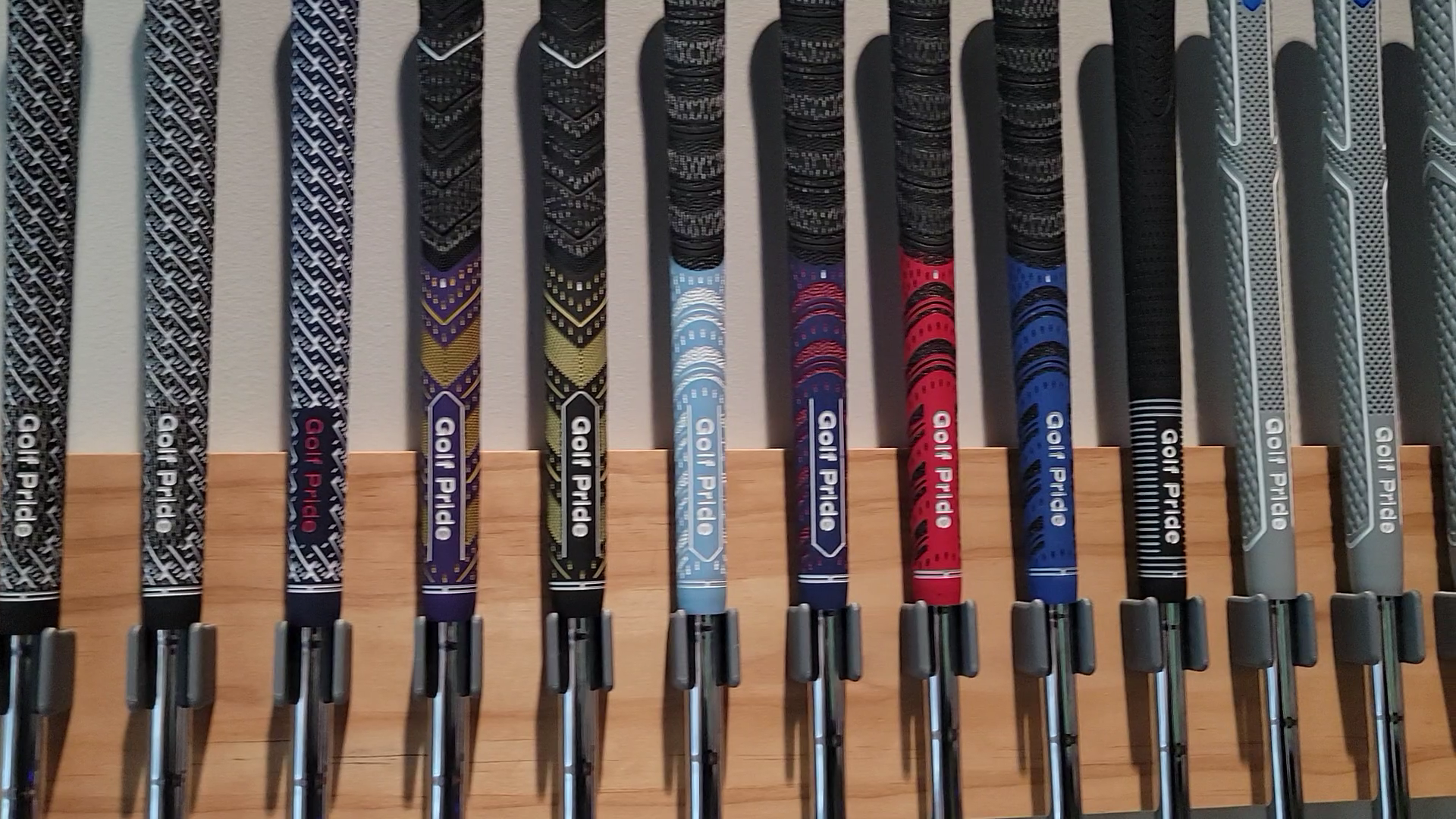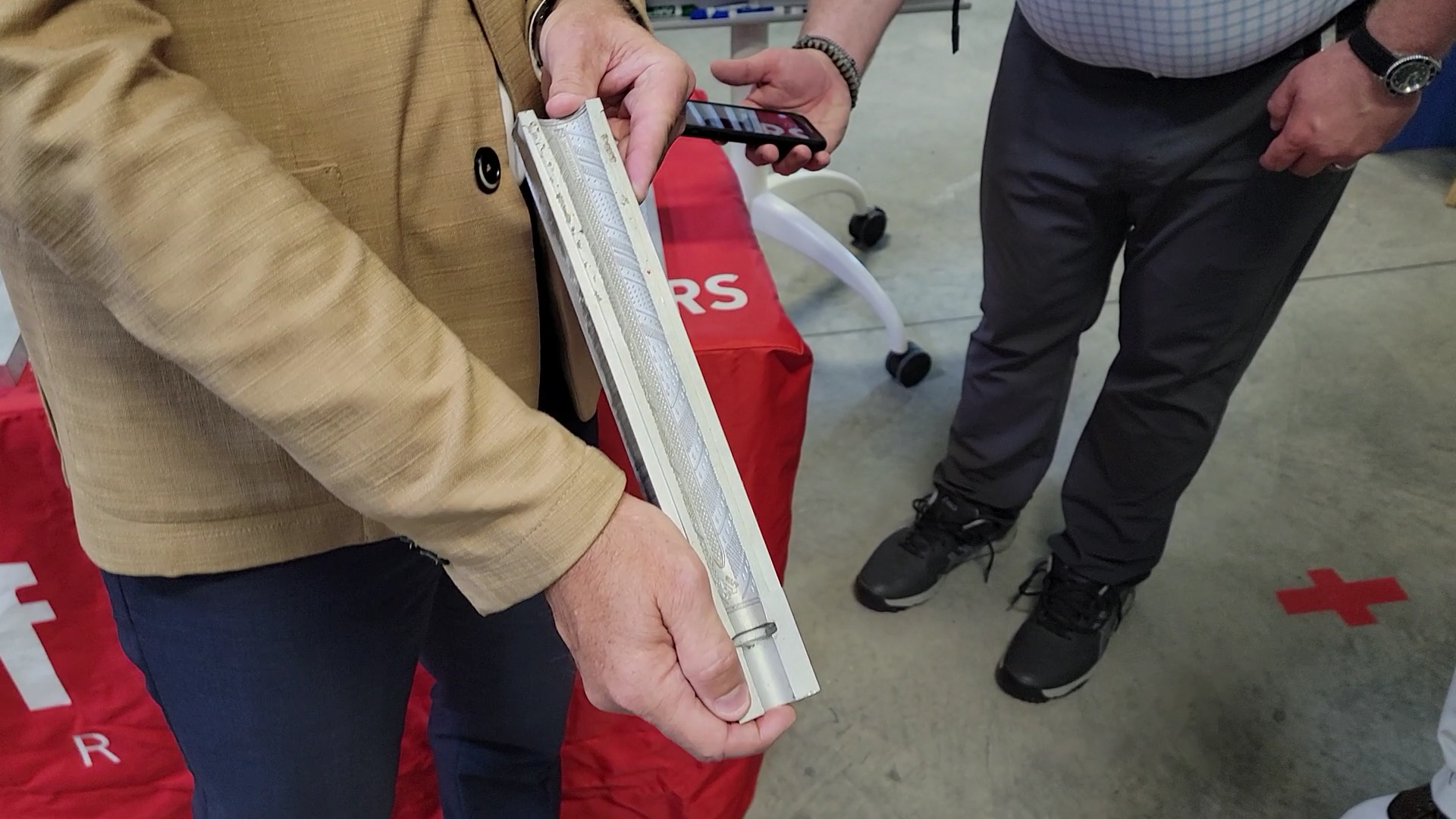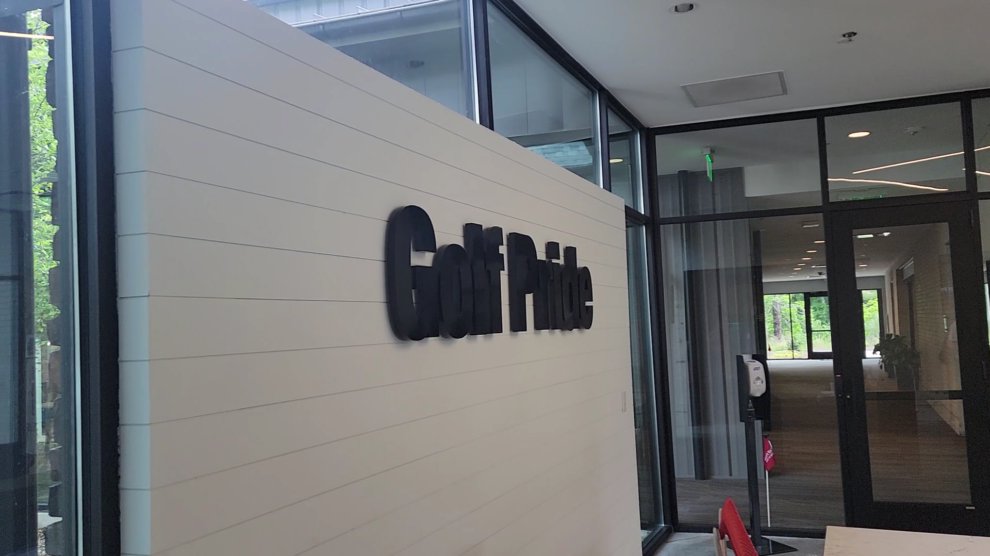Golf Pride is, by far, the biggest manufacturer and seller of golf grips. They dominate the market.
And yet, they feel like they can do more.
Golf Pride is looking to reinvent how golfers think of the grip -- the yeoman of golf equipment. The company wants golfers to think of grips not merely as required widgets but rather as performance equipment that is unique to every golfer.
Titleist likes to say that the golf ball is the only piece of equipment used on every shot. Not so fast, says Golf Pride. No one is gripping the club right on the steel or graphite.
And standing in a Golf Pride's new retail studio, located in their new Global Innovation Campus, just off the driveway into Pinehurst No. 8, you can feel the draw to specific grips. Just like wands have a way of finding Hogwarts students, grips have a way of speaking to golfers. Immersed in a room filled with grips of different sizes, tackiness, colors and materials, a golfer can understand where Golf Pride is coming from. Grips bring back memories of great shots and great times on the golf course, and that emotional connection is not lost on the company.
Golf Pride is inviting the public to visit, not only to have a convenient place to get new grips on their clubs, but to develop a connection that maybe they haven't had in the past.

At the same time, Golf Pride is also looking for ways to convince golfers that properly fit grips have a direct correlation to better performance. For the first time, the company is finally trying to gather its own data to make the case to consumers. Right now, they're gathering data to figure out the right questions to ask. How much does a golfer's performance improve with a fresh grip compared to a long worn one? What about having a grip that properly fits a players hand? How much tack is enough? The company hasn't had its eureka moment yet, but this is just the beginning.
While there's a public component to the GIC, it's also a place of business. Some 50 people work in a collaborative space, filled with a nine-hole putting course weaving the hallways, an employee lounge and kitchen, meeting rooms named after their most popular grips and architectural elements that look to blur the lines between indoors and outdoors. Golf Pride wants to embrace its history, including with its parents company Eaton, with a modern aesthetic that meets the relaxed Pinehurst ethos.
Perhaps the most important part of this space, however, is in the back of the building, which houses a space key to the company's future.
Behind this closed door, protective eyewear is required and trade secrets are protected. It's also where Golf Pride is looking to fundamentally change their product cycles.

The new CPx grip is truly the first created from the beginning with big influence from this new facility. With rapid prototyping capabilities and the exact equipment used in their overseas factories at their disposal, they can come up with new technologies and also understand better how to manufacture them before sending in their orders.
In the past, the manufacturing side had much more of a role -- typically in a surprise -- to solve the challenges that came from turning concepts into mass-produced products. Now, Golf Pride can speed up the process and leave less to chance, meaning a better product for consumers.
The COVID-19 pandemic has also changed the way Golf Pride works. With the ubiquitous supply-chain challenges that are still being worked out around the world, Golf Pride hasn't been able to make as many SKUs (stock-keeping units) of their grips, favoring the most popular models and styles with the manufacturing capability and raw materials they can get in a timely fashion. Moving forward, the company is going to substantially reduce the number of SKUs they offer on a day-to-day basis. Instead, they'll use their e-commerce channels to release small-batch runs of grips with devoted, albeit niche, audiences -- as well as some grips that might surprise.
For all of its impressive investments and innovations, Golf Pride and the broader grip industry still faces challenges when it comes to two fundamental issues: the time and money investments that go into regripping clubs.
Even with a lower-cost grip, a golfer is going to pay $120 to regrip a set of clubs. Introduce higher-end grips to the process, and the cost gets closer to $200. Defining the performance benefits of fresh grips and building an emotional connection to them might inspire more dutiful replacement of them.
However, most golfers also don't really know where to go to get their clubs regripped properly. A pro shop? A sporting goods store? But they do know they'll typically be without their sticks for at least a day, if not several. Golfers tend to get kind of anxious about that kind of thing.
If Golf Pride could leverage its e-commerce platform and large market presence to streamline and simplify the process, they could have a big opportunity on their hands. Golfers could buy their grips directly from Golf Pride or from a company-certified regripper that can offer online booking and a guaranteed turnaround time. Like developing the CPx grip, that would speed up the process and leave less to chance.
The most genius thing the auto quick-lube industry ever did was to hammer into consumers that they should change their vehicle's oil every three months or every 3,000 miles -- whichever comes first. That's changed now, but people still adhere to that guidance. Millennials cut up six-pack plastic containers like ducks' lives depend on it. If Golf Pride can convince golfers to change their grips every 12 months or every 30 rounds -- whichever comes first -- then they may unlock a whole new world of grip customers.
Making a data-based appeal to golfers that grips matter to a golfer's performance is a winning message. Golf Pride has the name brand, and they have the market share. Now they're looking for a piece of your golfing heart.

